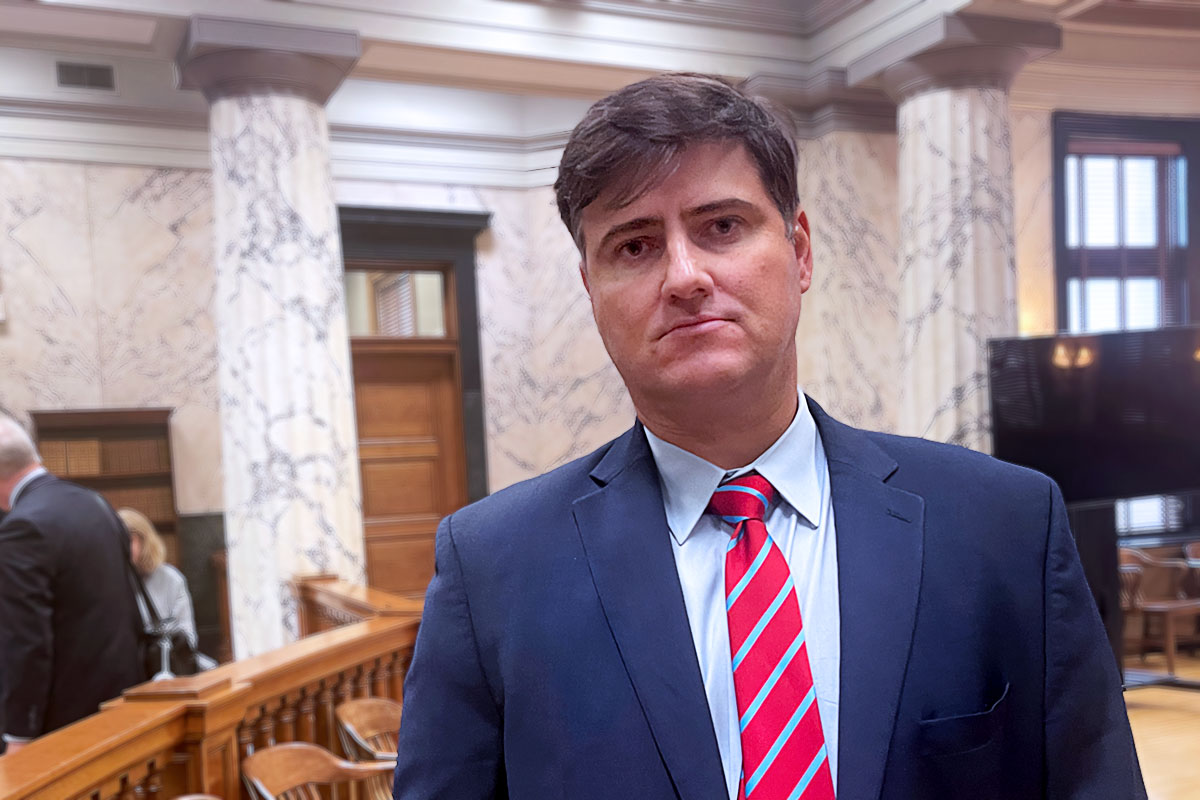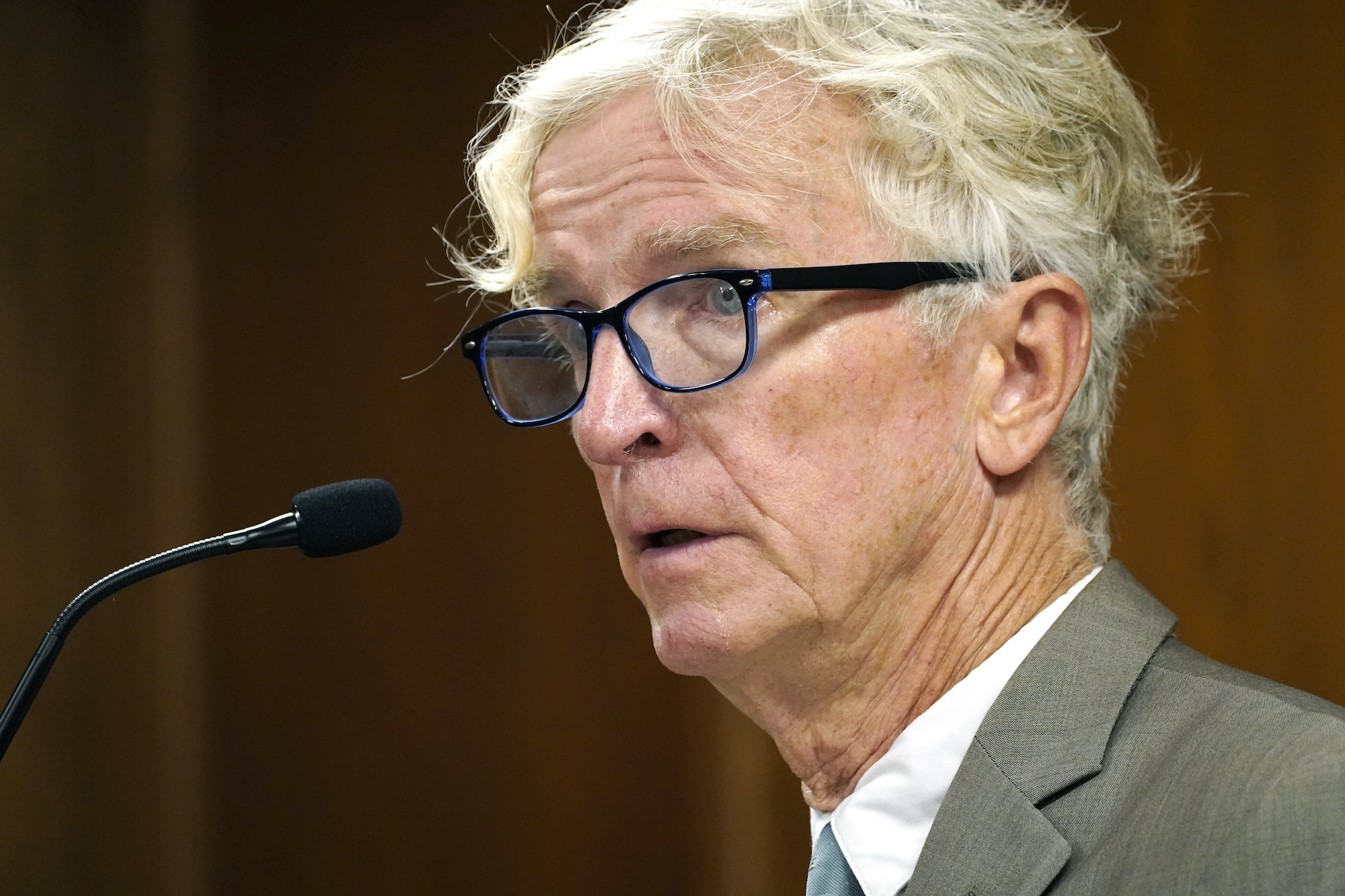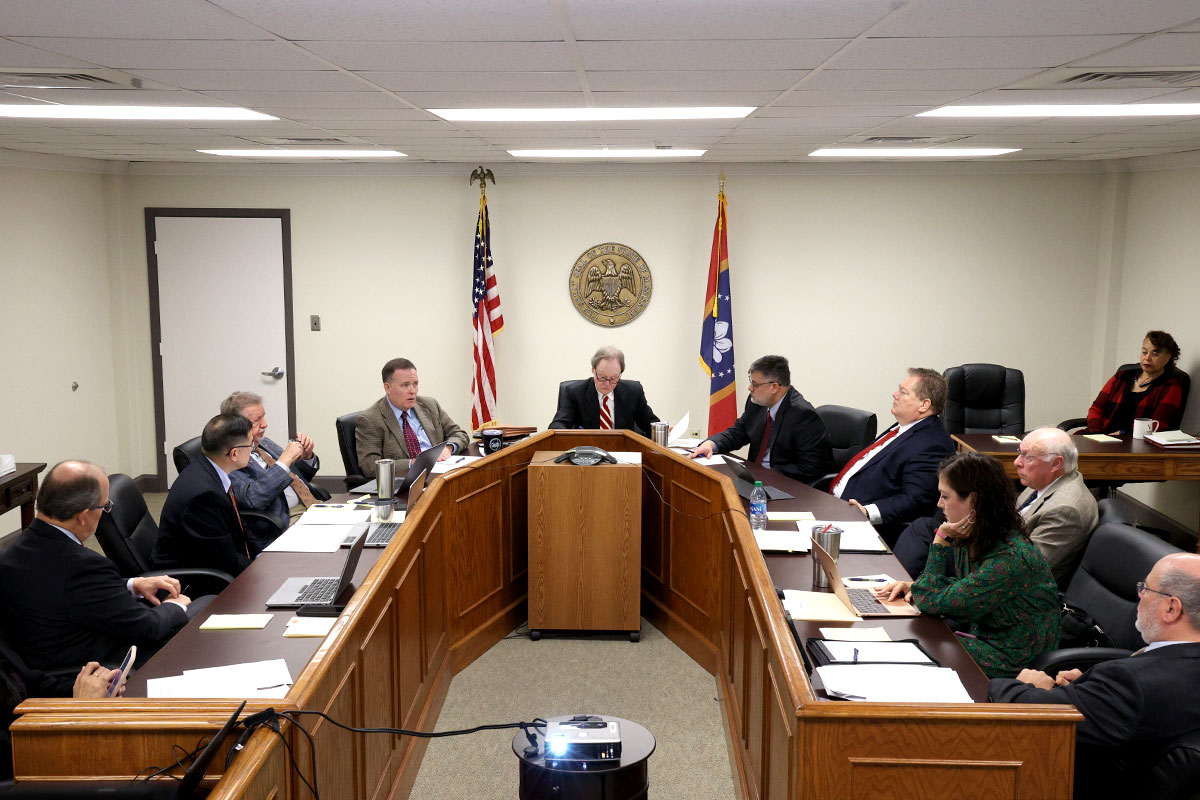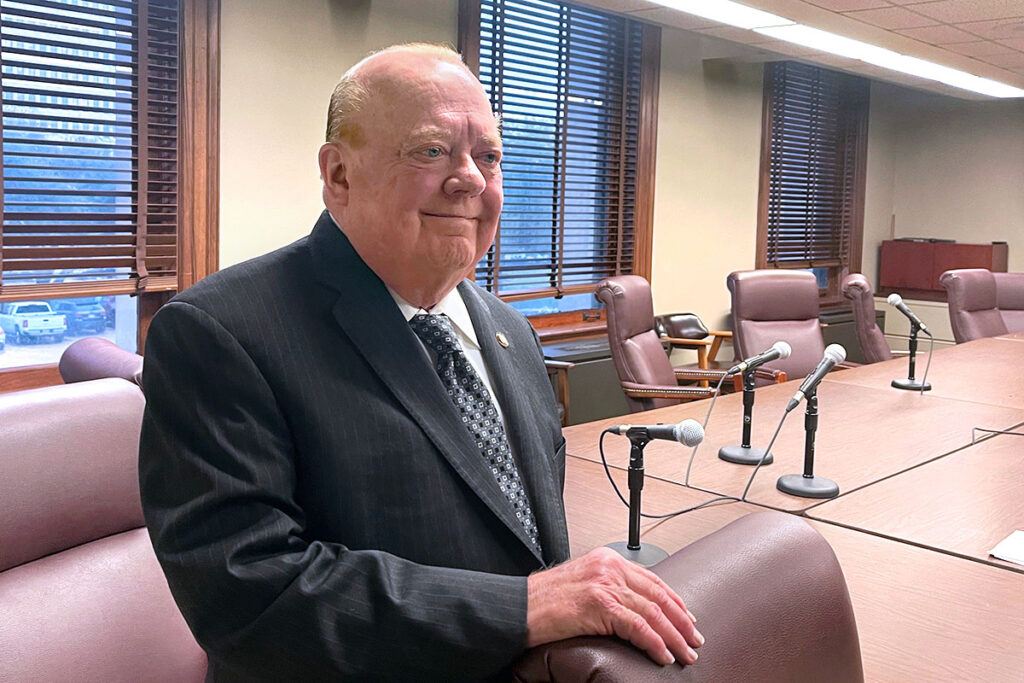The Mississippi Legislature is not yet a “public body” subject to full transparency under the Open Meetings Act this year after lawmakers failed to advance a bill to clarify its status before a legislative deadline.
Senate Bill 2667 would have altered Mississippi Code § 25-41-3 to clarify that the list of “meetings” covered by the Open Meetings Act includes “a quorum of members of a public body that may deliberate or act upon any matter” under their purview.
That decision came after the Mississippi Free Press and reporter Nick Judin filed complaints with the commission about the House Senate Caucus meeting to discuss and decide legislative positions with a majority of the House present.
After a majority of the Mississippi Ethics Commission voted last year that the Legislature is not a public body under current law, Sen. Jason Barrett, R-Brookhaven, sponsored the bill this session along with 19 other members. The legislation died in committee after Mississippi Senate Accountability, Efficiency and Transparency Committee Chairman John A. Polk, R-Hattiesburg, failed to bring it up for a vote before the Tuesday, Jan. 31 deadline.
“I decided not to bring it up—I talked to Senator Barrett, and we discussed it, and it needs more work,” Polk told the Mississippi Free Press on Tuesday. “It’s dead this year; there’s always next year.”
When the Mississippi Free Press told Barrett what the chairman said, the Brookhaven senator said he would speak further with Polk about it.
‘We Are Morphing Into A Parliamentary System’
On March 14, 2022, Mississippi Free Press reporter Nick Judin entered room 113, where state representatives had gathered for the House Republican Caucus meeting. Because Republicans hold a supermajority in the House, lawmakers there often make decisions about legislation without any non-Republicans present and outside the view of the public.
After Judin said he was there “under the Open Meetings Act,” a staffer told him the “caucus is not subject to the Open Meetings Act.”
“This is not subject to the Open Meetings Act?” Judin asked.
“No,” Mississippi House Speaker Philip Gunn and numerous other legislators replied.
The caucus, which consists of 75 of the chamber’s 122 members of the chamber, represents a quorum of the Legislature.

Sen. Hob Bryan, D-Amory, told Judin in an interview that month that “we are morphing into a parliamentary system, where the individual members are just there to vote the way the party tells them to vote.”
“They’re fungible goods. They’re in an echo chamber, no matter what they’re talking about, there’s nobody in there to stand up and say, ‘this is a bad idea.’ Particularly if it’s the speaker’s idea,” he said.
The Mississippi Free Press and Judin filed a complaint with the Mississippi Ethics Commission in April 2022. In Gunn’s response in May 2022, he argued that the complaint raises “nonjusticiable political questions and reaching the merits would violate the separation of powers” and that “even if the House itself were a ‘public body’ under the act, a meeting of a caucus of House members is not a ‘meeting’ for the purpose of the Open Meetings Act.”
In December, the Ethics Commission, in a 5-3 vote, rejected Director Tom Hood’s recommendation to rule that the Mississippi House of Representatives is a “public body” subject to the Open Meetings act.
Stephen W. Burrow, a member of the Ethics Commission, said during a meeting in December that the definition of “public body” in the Open Meetings Act was “ambiguous.” He voted against Hood’s recommendation.
“What strikes me about the definition is that … they would include specific references to certain types of committees, but not include a specific reference to themselves,” he added.
In a joint statement following the decision, attorney Rob McDuff of the Mississippi Center for Justice and the Mississippi Free Press explained that the ruling “said that while the Open Meetings Act covers most committees of the Legislature, the Legislature itself is not covered and therefore the House Republican Caucus is not covered even when its meetings include a quorum. The Commission pointed out that, under the Mississippi Constitution, the House and the Senate must generally keep their doors open while in session.”

“Although the Constitution requires the Legislature to keep its doors open when in session, the Open Meetings Act is even more comprehensive and would require that other meetings of legislators, like the Republican Caucus, be open to the public when they constitute a quorum and are discussing public business,” McDuff said in the December 2022 statement.
‘It’s Sent A Bad Message’
One of S.B. 2667’s co-sponsors, Sen. Brice Wiggins, R-Pascagoula, said the Ethics Commission’s December decision was “flawed,” “very confusing,” and “sends a bad message.” He spoke in an interview with the Mississippi Free Press on Monday, Jan. 30, 2023, before the Tuesday deadline for the bill to make it out of committee for possible progression to become law.
“The Legislature has always operated in public in its official capacity, and I think that the decision by the Ethics Commission, while maybe legally correct—based on what I’ve been told—sends a bad message, and this is a way that we can change that so there’s no question,” Wiggins said. “… The way we fix it is we come back and file a bill because the Open Meetings (Act) is a statute that the Legislature passes.”
“Part of the reason I co-signed onto it was that I think the legal rationale that was told to me—and it was reflected in the ruling of the Ethics Commission—I think was flawed, and it sent a bad message, and we need to clear that up for the public.”

The bill Barrett sponsored would have added the chancery court as a body with the power to “adjudicate an alleged violation” of the Open Meetings Act and enforce its provisions; currently, only the Ethics Commission can do so. The bill would have increased the civil penalty for violations from a maximum of $100 to $500 each.
‘I Have Always Been For Transparency’
Sen. David Blount, the only Democrat among the bill’s co-sponsors, is still holding out hope for its revival after the Accountability, Efficiency and Transparency Committee chairman did not bring it up Tuesday.
Blount is a member of the committee and has long been a proponent of government transparency. He spoke with the Mississippi Free Press after its meeting Tuesday.
“We are here for two more months; I wish that bill has been called out; it was the right thing to do; we’ll be looking for opportunities in the next two months to revive it,” he said.
Aside from Blount and Barrett, the bill’s other co-sponsors were Sen. Bart Williams, R-Starkville; Jenifer Branning, R-Philadelphia; Jeremy England, R-Vancleave; Jeff Tate, R-Meridian; Tyler McCaughn, R-Newton; Charles Younger, R-Columbus; Chris Caughman, R-Mendenhall; Joseph M. Seymour, R Vancleave; Neil S. Whaley, R-Potts Camp; Michael McLendon, R-Hernando; Brice Wiggins, R-Pascagoula; Philip Moran, R-Klin; Nicole Boyd, R-Oxford; Angela Burks Hill, R-Picayune; Dennis DeBar, R-Leakesville; Kathy L. Chism, R-New Albany; Benjamin Suber, R-Bruce; Daniel H. Sparks, R-Belmont.
In an interview with the Mississippi Free Press on Jan. 17, 2023, Sen. Barrett said he ran for office in 2020 with transparency as a part of his platform.
“I ran on this three years ago. I have always been for transparency,” he said. “I think that to have a successful government, we should be transparent, and the voters should know what we’re talking about, what we are meeting on, what we are voting on and how we vote.”










